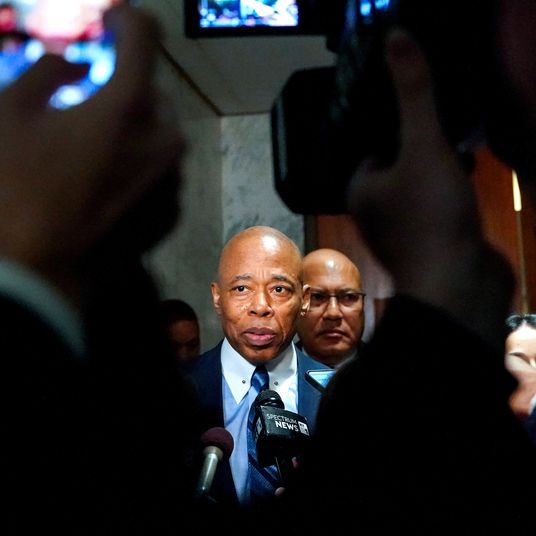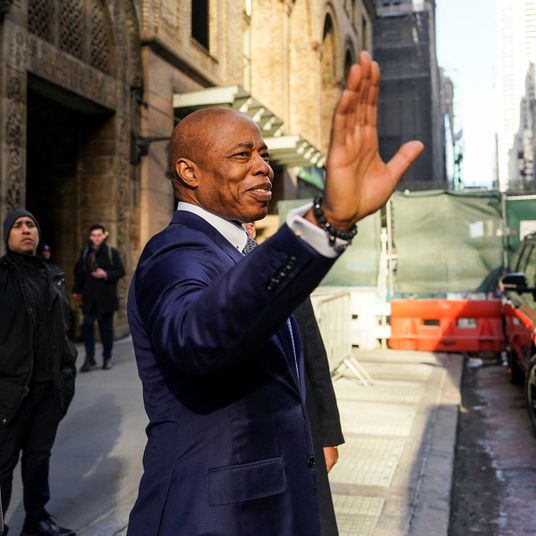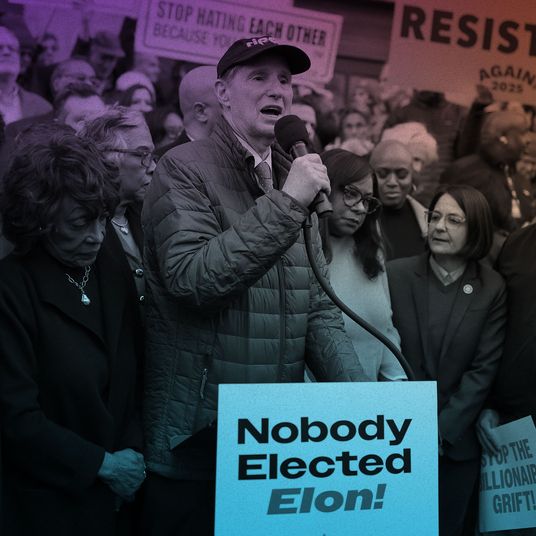
In the background of the daily political grind, there has been a back-and-forth battle of narratives over Trump’s senior strategist Stephen Bannon. The reason is pretty obvious: He (and his protégés in the White House) is the living link between Donald Trump and a netherworld of previously marginal people known as “nationalists” or “populists” or the “alt-right.” Trump supporters naturally want to mainstream Bannon, and his former bailiwick at Breitbart, as much as possible, while excluding entirely from the charmed circle of real influence the white-identity-politics types and open racists who are so present on social media and other gathering points for the mogul’s most avid fans.
So it’s of more than passing interest when Bannon himself tells the story (via The Wall Street Journal’s Michael Bender) of his own radicalization. When financial markets collapsed in 2008, Bannon, then just your average investment banker with a taste for conspiracy theory filmmaking, watched helplessly as his elderly father authorized a panic sale of stock in the company he served for many years, AT&T. None of Bannon junior’s Wall Street buddies went to jail for the betrayal of people like Bannon senior, and thus was born Stephen Bannon as a “divisive political firebrand.”
It’s a sad and heartwarming story. But a counter-narrative stubbornly keeps emerging of Bannon’s intellectual interests having as big an impact on his political thinking as that single incident in 2008. And two examples involve French writers from that country’s royalist and often racist authoritarian Right.
First HuffPost unearthed multiple recent examples of Bannon favorably citing Jean Raspail’s 1973 novel, Le Camp Des Saints (The Camp of the Saints), as a prophecy for the crisis facing Western countries in the form of immigrants and refugees pouring in from non-developed, nonwhite, non-Christian countries. While it may or may not be fair to call Raspail a racist or a fascist (he rejects the label, but does confess to being a royalist), the whole thrust of his novel was to scorn the suicidal liberalism of modern Europe as compared to the “healthier” murderous impulses of self-respecting white Christians ranging from the crusaders to the Ku Klux Klan. And the book’s central presentation of Asian refugees as an existential threat to Western Civilization makes it a rather alarming source of inspiration for anyone close to actual power. It does, on the other hand, help explain the over-the-top obsession of Breitbart with refugee and immigration policy to this day.
But it seems Bannon’s French quasi-fascist influences significantly predate Raspail. In a recent profile of the man’s attitude toward Europe, Michael Crowley discovers a more exotic role model:
Bannon has also expressed admiration for the reactionary French philosopher Charles Maurras, according to French media reports confirmed by Politico. Maurras, like Bannon, was a Catholic nationalist, and he argued in the early 1900s that the Enlightenment had elevated the individual over the nation. (One person who knows Bannon said he has spoken of the coming end of the Enlightenment.) To Maurras, a hero of the modern French right wing, the French Revolution ideals of “liberty, equality and fraternity” were a liberal cosmopolitan corruption of France’s authentic identity. Bannon has approvingly cited Maurras’ distinction between the “legal country,” led by elected officials, and the “real country” of ordinary people, as a frame for the populist revolt underway. Maurras even warned about the nefarious influence of Islam in Europe.
As Pema Levy points out at Mother Jones, Crowley’s description of Maurras omits a rather crucial issue: He and his Action Francaise organization were inveterate anti-Semites who proposed a classically fascist political and economic order. Those who, like me, have read Ernst Nolte’s classic study Three Faces of Fascism, think of Maurras as having pioneered many of the dogmas and practices later made catastrophically important by Mussolini and Hitler. And while Maurras was too much of a German-hating French nationalist to support Adolph Hitler, he did become an enthusiastic supporter of the Vichy regime after France’s defeat in World War II, and was subsequently imprisoned for collaboration with the Nazis.
So at what point do Bannon’s rather disreputable influences become relevant to the advice he is offering Donald Trump? That’s hard to say. But as long as he’s citing thinkers like Maurras, it’s going to be hard for him to disavow the white-nationalist label, or worse.






























